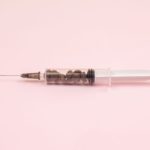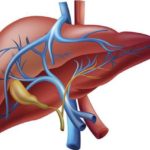Effects of alcohol consumption – what are they?
Ethyl alcohol, ethanol, or simply named alcohol is the most frequently consumed recreational substance all over the world. Despite the social acceptance for drinking alcohol, its excessive consumption results in adverse changes throughout the human body. However, it is also reported that if consumed in small quantities, it may be beneficial in the reduction of ischemic heart disease. Alcohol is produced in a fermentation process of glucose by yeast. After consumption, it is absorbed in the small intestine and metabolized to acetaldehyde in the liver and stomach.
Physiological effects of alcohol consumption
Central Nervous System – alcohol decreases the activity of a brain. It affects many neurotransmitters in the brain. Dopamine and serotonin, hormones responsible for the feeling of pleasure, are released into the bloodstream after alcohol consumption. For a body, it works like rewarding aspects of alcohol drinking and that is why we enjoy it. Such additional stimulation results in behavior modification in the form of loss of inhibitions, cheerfulness, and impaired judgment. Higher intake may result in agitation, slurred speech, memory loss, double vision, and incoordination of movements.
Heart and blood vessels – alcohol affects the heart and the blood vessels. Its consumption causes dilatation of blood vessels, giving a sense of pleasant warmth which can be dangerous in extreme cold situations. It can result in hypothermia (fall of body temperature below critical levels) and may lead to death. Alcohol can also induce arrhythmias (the irregular rhythm of the heartbeat) which are usually harmless but can be fatal in some cases. The protective effect of alcohol is due to an increase in the level of high-density lipoproteins in blood circulation.
Effects of excessive alcohol consumption
Risk of cancer – chronic alcohol abuse increases the risk of cancer of the oropharynx (oral cavity and pharynx), esophagus, liver, colorectal (large intestine), and breast. Heavy drinkers consuming 8-10 drinks per day have a 12-15 times higher risk of cancer incidence. The risk of oropharyngeal cancer is much higher when smoking is combined with alcohol consumption.
Liver – about 60-90% of consumed alcohol is metabolized in the liver. In developed countries, alcoholic liver disease is among the top ten causes of death. Excessive consumption results in fat accumulation in the liver, thereby increasing its size. Continued consumption for over a decade may result in hepatitis (inflammation of the liver) and ultimately to cirrhosis, as functional liver cells are replaced by non-functional fibrous tissue. This scarring in the liver reduces the blood flow through the liver causing increased blood pressure in the portal (blood flow from abdominal organs to the liver) circulation. This results in shunting/diversion of blood away from the liver and through other organs like the esophagus. Such state may lead to severe complications of portal hypertension in the form of esophageal varices (dilated veins in the lumen of the lower esophagus which may burst and result in fatal bleeding), ascites (accumulation of fluid in the abdomen), and encephalopathy (altered consciousness due to lack of detoxification of certain chemicals in the liver). However, not all alcoholics progress to cirrhosis due to different genetic factors.
Pancreas – chronic pancreatitis (low-grade inflammation of the pancreas) associated with severe abdominal pain may occur in case of alcohol abuse. Chronic inflammation affects the destruction of cells responsible for the production of digestive enzymes and insulin hormones. Destruction of more than 90% of the pancreatic cells results in failure to digest fats and proteins, which leads to deficiency of these nutrients. The other consequence may be the development of diabetes mellitus due to the lack of insulin production.
Heart – chronic alcohol consumption can cause hypertension and alcoholic cardiomyopathy (a dilated heart with less effective contraction). In association with thiamine deficiency (B vitamin), heart failure is probable to occur.
Anemia – intemperate people are at higher risk of developing anemia because of a multitude of reasons. They neglect nutrition and develop a deficiency of vitamins from the B group. Chronic blood loss from esophageal varices leads to iron-deficiency anemia.
Alcohol is consumed by both the poor and the rich and so it damages everybody irrespective of social status. Its consumption should be kept in moderation so as to prevent irreversible damage and multi-organ diseases. Reducing alcohol drinking may also help in the prevention of certain types of cancer.




























